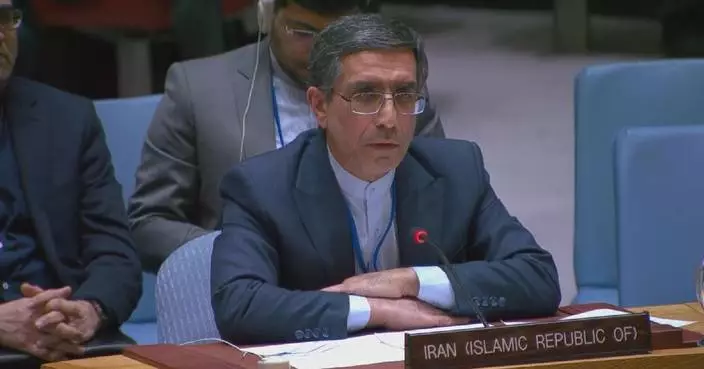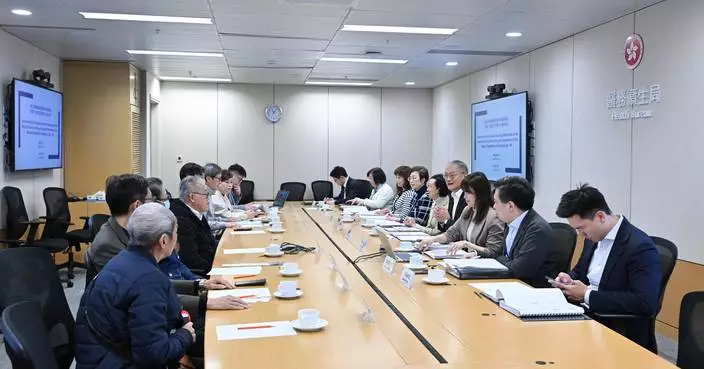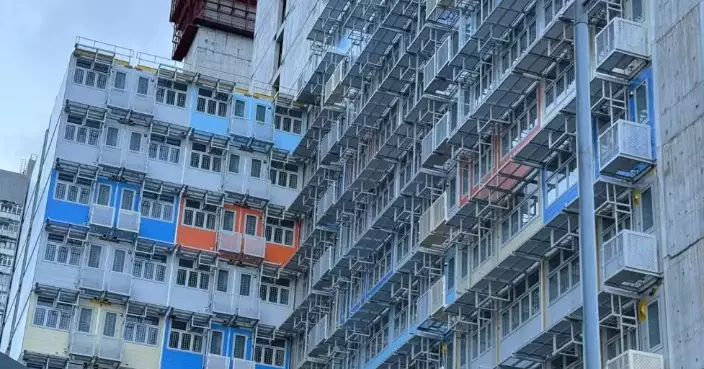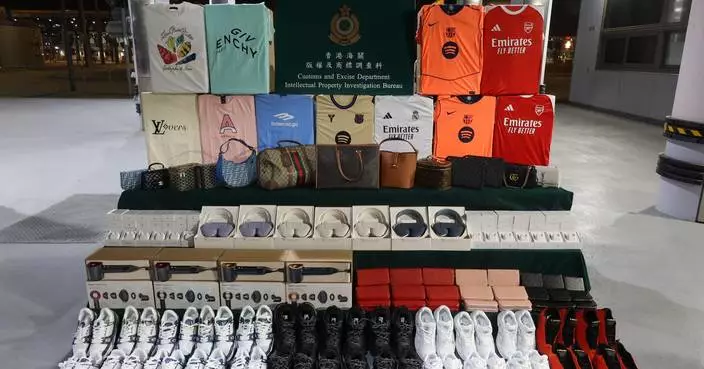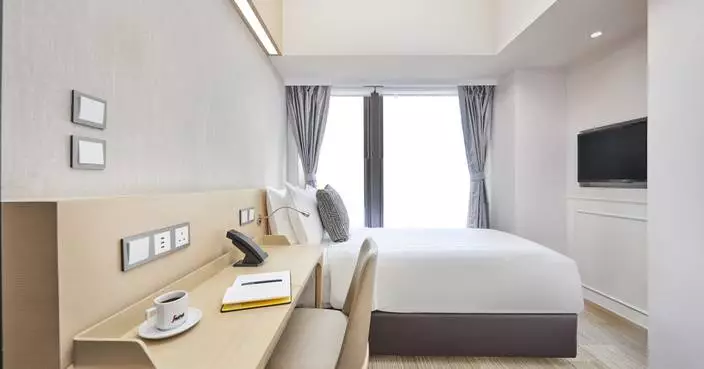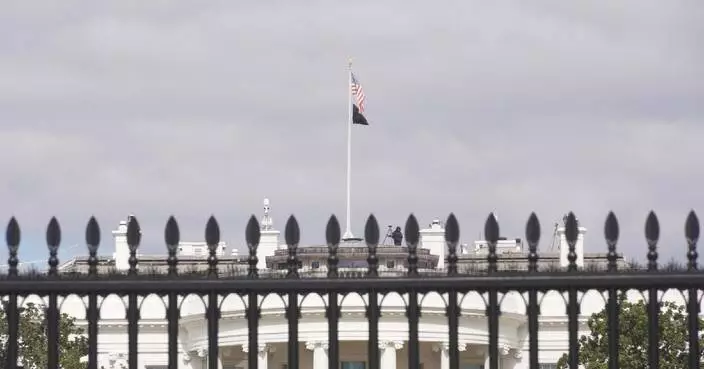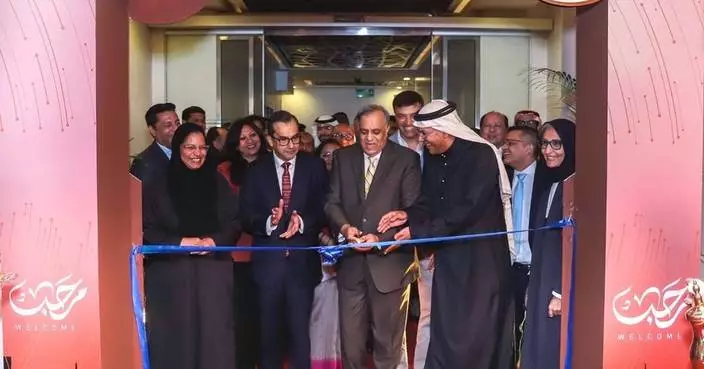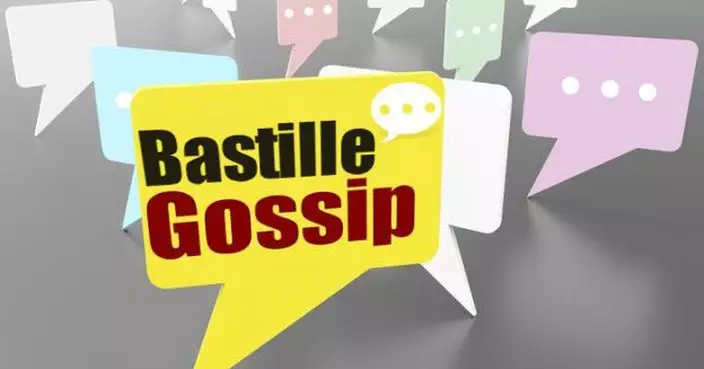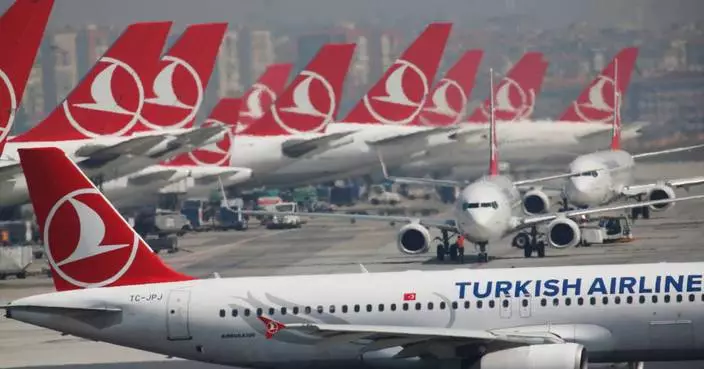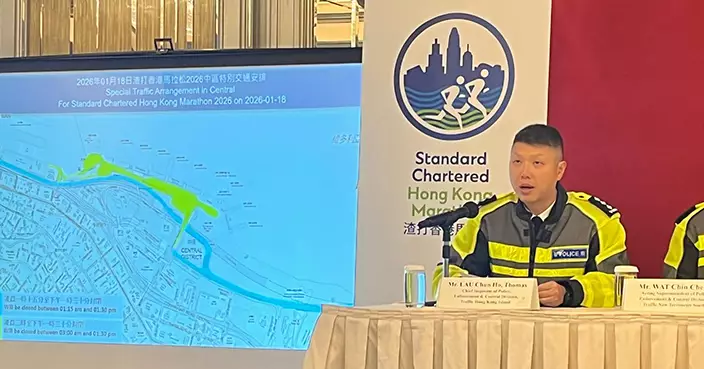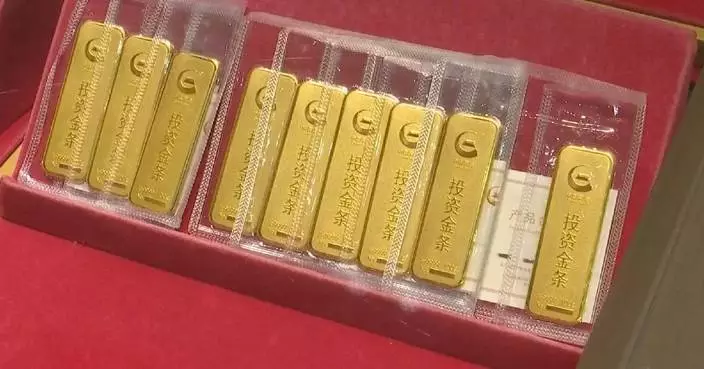Feature · News
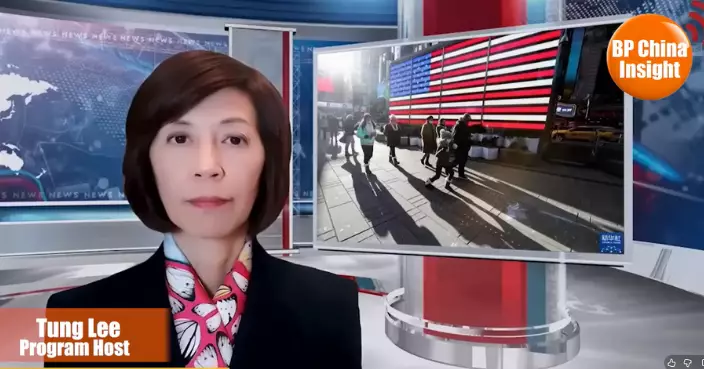
BP China Insight: China's market becomes key — U.S. allies voting with their feet
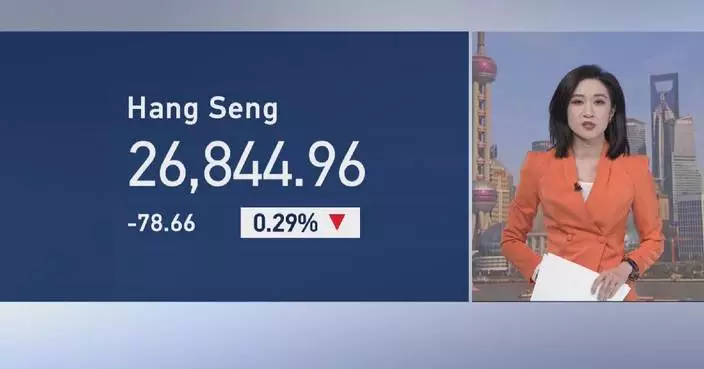
Hong Kong stock markets edge lower as Tokyo stocks decline amid policy uncertainty: analyst
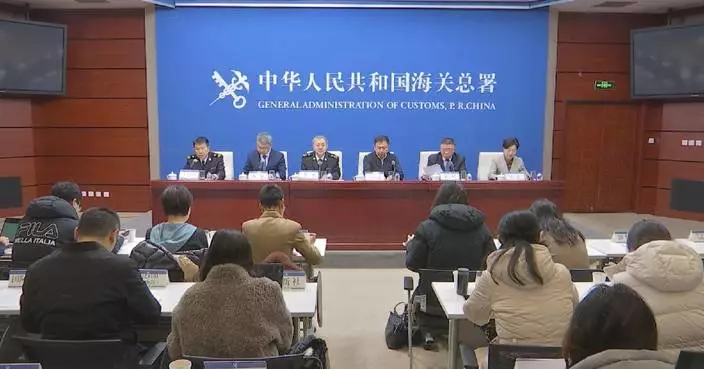
China promotes 25 measures nationwide to facilitate cross-border trade

Taiwan secessionists bound to be swept away: spokesman
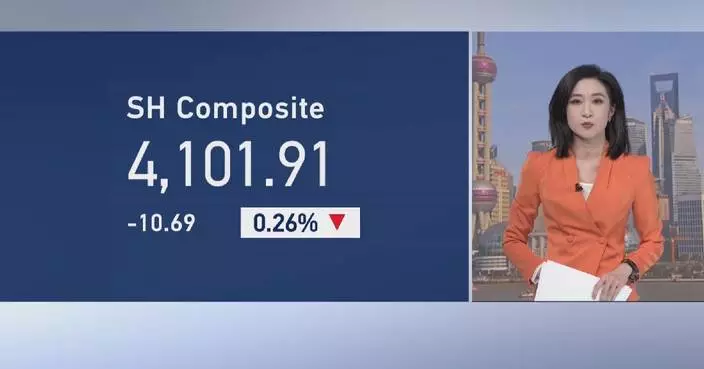
Chinese stock markets edge lower Friday amid absence of major market-moving catalysts: analyst
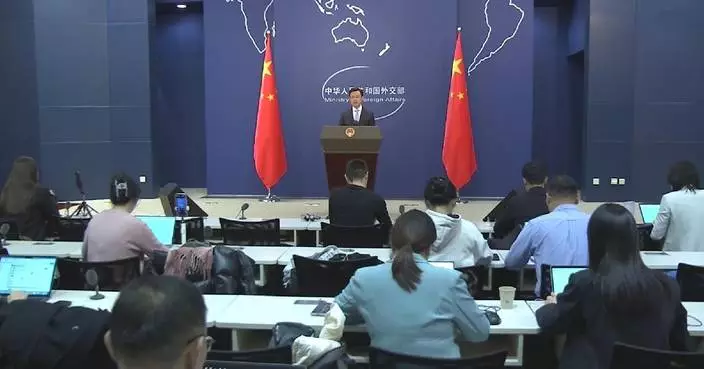
China to further promote innovative strategic partnership with Switzerland for more outcomes: spokesman

China warns of "catastrophic disasters" from unchecked Japanese militarist ambitions: spokesman

BP China Insight: Expert: "De-Sinicization" has turned into "De-Americanization"

China to further deepen defense, security cooperation with Laos: spokesman
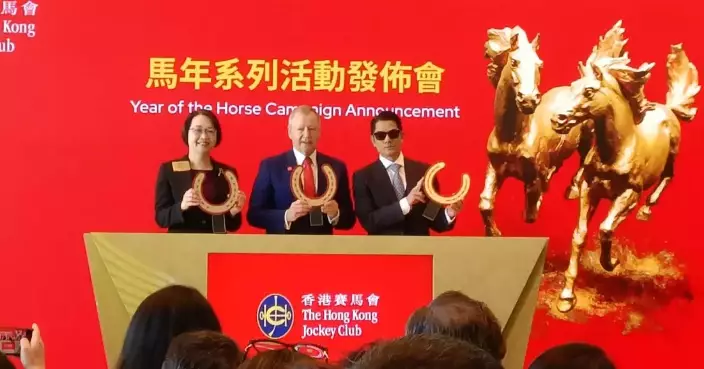
The Chinese New Year Fireworks Display, Solely Sponsored by The Hong Kong Jockey Club, will Shine on the Victoria Harbour on February 18th

Sick 70-Year-Old In Custody Dies After Deteriorating Condition in Public Hospital
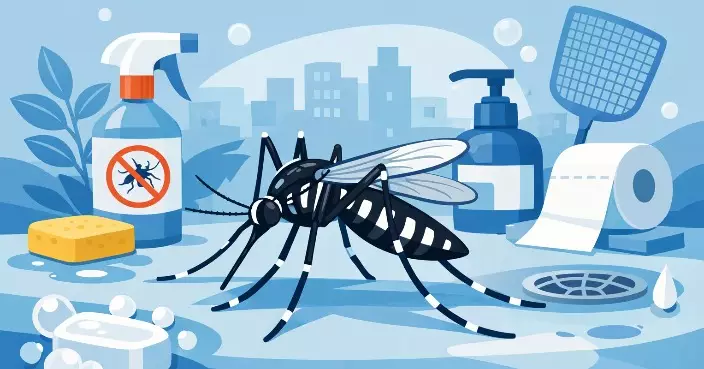
Health Authorities Warn of Rising Dengue and Chikungunya Fever Risks Amid Favorable Mosquito Breeding Conditions
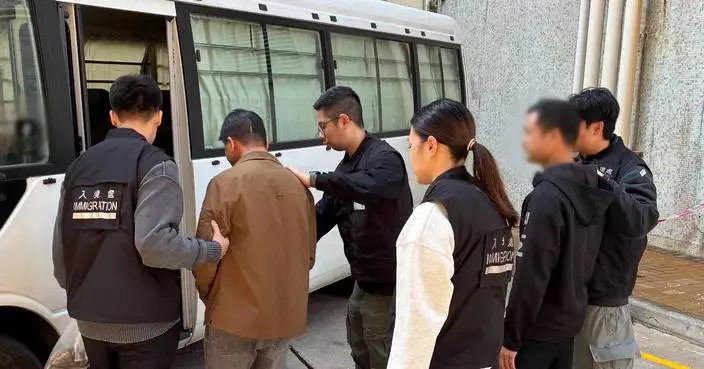
Anti-Illegal Worker Operations in Hong Kong Result in Eight Arrests and Ongoing Investigations
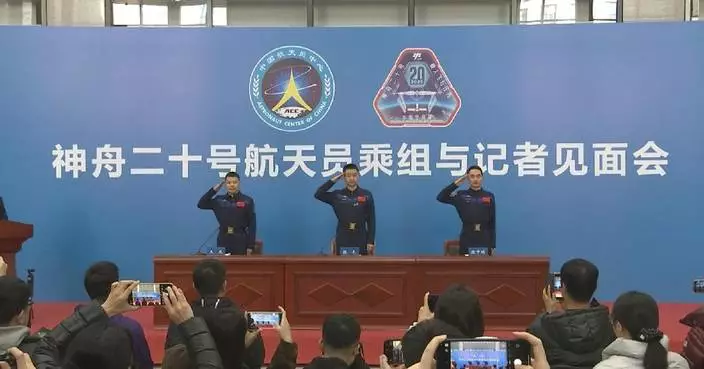
Returned Shenzhou-20 astronauts meet press
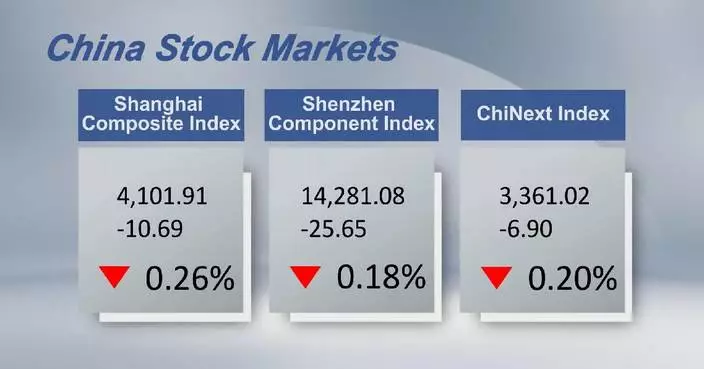
Chinese shares close lower Friday
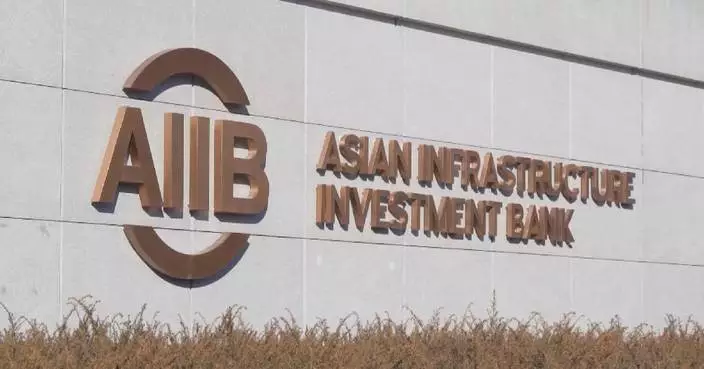
AIIB grants 70 bln USD funding in 10 years

China warns of "catastrophic disasters" from unchecked Japanese militarist ambitions: spokesman

BP China Insight: Expert: "De-Sinicization" has turned into "De-Americanization"

China to further deepen defense, security cooperation with Laos: spokesman

The Chinese New Year Fireworks Display, Solely Sponsored by The Hong Kong Jockey Club, will Shine on the Victoria Harbour on February 18th

BP China Insight: China's market becomes key — U.S. allies voting with their feet
Hong Kong stock markets edge lower as Tokyo stocks decline amid policy uncertainty: analyst
China promotes 25 measures nationwide to facilitate cross-border trade

Taiwan secessionists bound to be swept away: spokesman
Chinese stock markets edge lower Friday amid absence of major market-moving catalysts: analyst

China to further promote innovative strategic partnership with Switzerland for more outcomes: spokesman

Sick 70-Year-Old In Custody Dies After Deteriorating Condition in Public Hospital

Health Authorities Warn of Rising Dengue and Chikungunya Fever Risks Amid Favorable Mosquito Breeding Conditions

Anti-Illegal Worker Operations in Hong Kong Result in Eight Arrests and Ongoing Investigations
Returned Shenzhou-20 astronauts meet press
Chinese shares close lower Friday
AIIB grants 70 bln USD funding in 10 years
Feature·Bloggers

【Deep Throat】Trump's Latest Iran Tariff Bluff: China Sees Right Through It
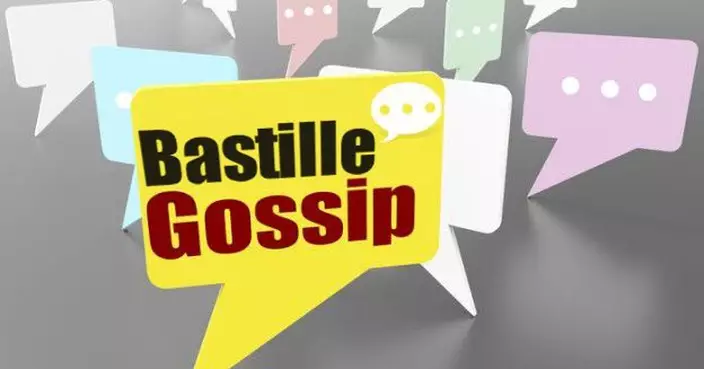
【Ariel】Jimmy Lai’s “Solitary” Twist: Judges Say He Asked For It

【What Say You?】Accomplice Witness Chen Zihao: Family Stalked, Fears Black Bloc Revenge After Release

【Deep Blue】International Laws? You Kidding Me?

【Bastille Commentary】Chicken-hearted Conservatives: Sanctioning Hong Kong Judges While Trump Runs Wild

【What Say You?】Trump’s “Maduro Grab” Gets a Glossy Spin by the Usual Suspects
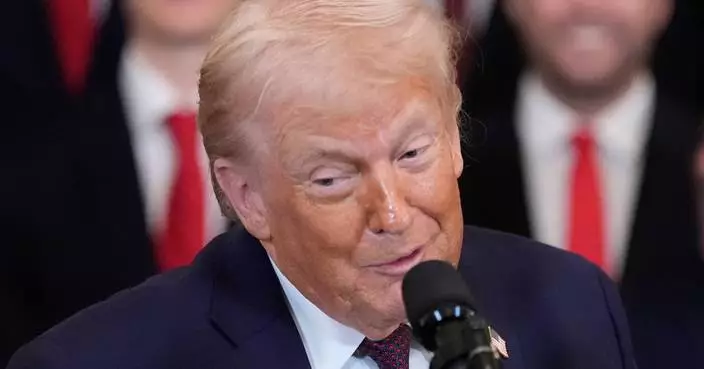
The Latest: Middle East allies urge Trump to hold off on Iran strikes, diplomat says
- NASCAR community mourns driver Greg Biffle, 6 others killed in plane crash at memorial service
- Trump to pardon ex-Puerto Rico governor Vázquez in campaign finance case, official says
- Members of Zizians group attend hearing ahead of Maryland trespassing trial
- Trump says he may punish countries with tariffs if they don’t back the US controlling Greenland
- Palestinian committee set to govern Gaza under US supervision meets in Cairo
- Warming shelters for the homeless are open as Florida experiences its coldest weather this winter
- No sign of new protests in Iran as a hard-line cleric calls for executions and threatens Trump
- UK police chief who recommended ban of soccer fans of Israeli team Maccabi retires
- More than 100 dead in torrential rain and floods across southern Africa
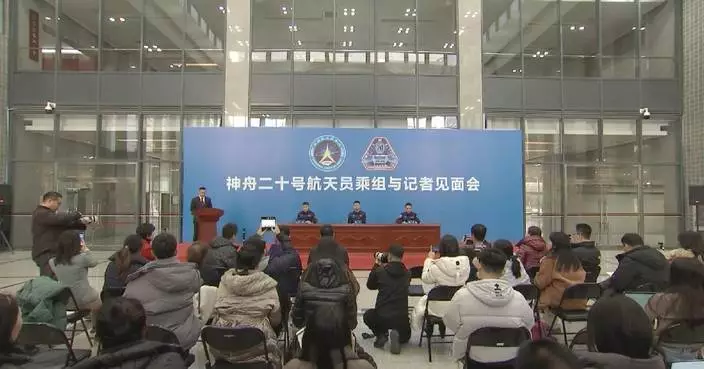
Shenzhou-20 astronauts share experiences after safely returning from debris incident
- Canada PM Carney says China trip "historic and productive"
- German economy grows 0.2 pct in 2025, ending two years of contraction
- China, Canada should work together for stable, healthy, sustainable economic ties: Vice Premier
- Chinese premier chairs meeting on promoting service consumption
- China to strengthen recycling management of used power batteries from NEVs
- Palestinian death toll in Gaza rises to 71,455
- ROK ex-president Yoon sentenced to 5 years in prison on arrest obstruction charges
- Mainland never slackens efforts to punish Taiwan separatists: commentary
- China's first light sport aircraft with independently-developed avionics, engine delivered
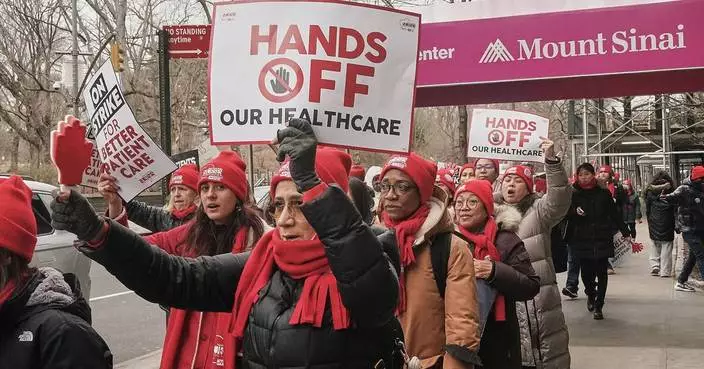
Nurses restart contract talks with another major hospital system on 5th day of strike
- Tesla granted more time in US investigation into its self-driving tech
- Why Thailand's deadly construction accidents are sparking outrage and scrutiny
- Arspura's CES 2026 Showcase Advances Next-Gen Ventilation for a Healthier Kitchen
- GIGABYTE Strengthens NVIDIA® Partnership to Drive Innovation in AI-Powered Gaming and Creative Solutions
- LiberNovo Omni Moss Green Officially Launched
- Award Ceremony for 2025 Yiwugo's Top 10 Vendors Competition Successfully Held
- WebX Launches Global Chain Commerce Platform and Unveils Chain Capital in Hong Kong
- THIRDREALITY CES 2026 Recap: Real Stories, Real Homes, and What Comes Next
- VEVOR Enters U.S. Physical Retail with First Brick-and-Mortar Store in Houston
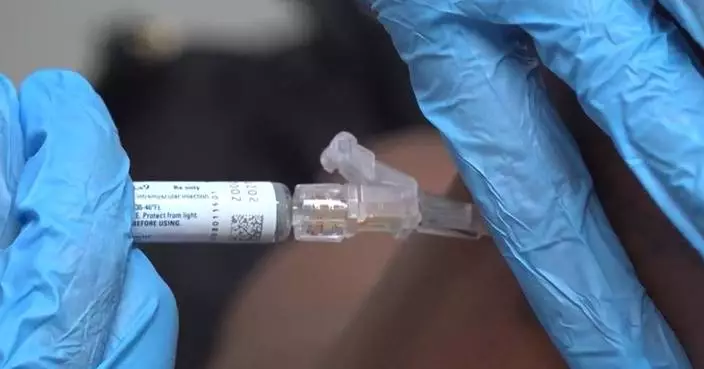
US flu activity fell for a second week. But experts worry the season is far from over
- Legal questions swirl around FDA's new expedited drug program, including who should sign off
- Takeaways from the AP's report on turmoil surrounding the FDA's new fast-track drug program
- She set a photo afire, lit a cigarette — and became a symbol of resistance for Iran protesters
- What you need to know about Grok and the controversies surrounding it
- At Detroit auto show, spotlight dims for EVs
- Kaiser affiliates will pay $556M to settle a lawsuit alleging Medicare fraud
- What to know about UK legal changes aiming to regulate AI-generated nude images
- Ailing astronaut returns to Earth early in NASA's first medical evacuation
- Aimed at the growing number of young Chinese who live alone, a new app asks: ‘Are you dead?'

Tears and anger in Europe as exiled Iranians protest government crackdown
- Julio Iglesias denies sexual abuse allegations, calling them 'absolutely untrue'
- Kathleen Kennedy, steward of 'Star Wars,' steps down from Lucasfilm
- Former Universal chair David Linde named CEO of Sundance Institute
- The new BTS album title and what to know about the K-pop band’s comeback
- Min Jin Lee's 'Pachinko' follow-up, 'American Hagwon,' will explore Korean education obsession
- Actor Timothy Busfield ordered held without bond in New Mexico child sex abuse case
- Royal Opera sees generation change as Jakub Hrůša and Speranza Scappucci come in
- Julio Iglesias accused of sexual assault in Caribbean as Spanish prosecutors study the allegations
- Fanatics debuts Fanatics Studios with Olympics, Tom Brady and ESPN at Intuit Dome

Texans' fearsome foursome fuels Houston's pass rush
- Bo Bichette and the New York Mets agree to a $126 million, 3-year contract, AP source says
- Surging Buffalo Sabres starting to bring back memories of the franchise's success of 20 years ago
- Carrick becomes the sixth Man United boss to face Guardiola
- LISTEN: All-Pro QB Matthew Stafford credits teammates, Rams coach Sean McVay for his success
- Josh Lowe to Angels, Gavin Lux to Rays and Brock Burke to Reds in 3-team trade
- Al-Attiyah and Brabec dominate penultimate stage to edge closer to Dakar Rally victories
- Ice dance champ Papadakis says she lost Olympic commentary role for NBC over dispute with ex-partner
- Man City close to buying Guehi and manager Glasner announces he is leaving Crystal Palace in summer
- Britain's Matt Weston, Belgium's Kim Meylemans clinch World Cup skeleton season titles
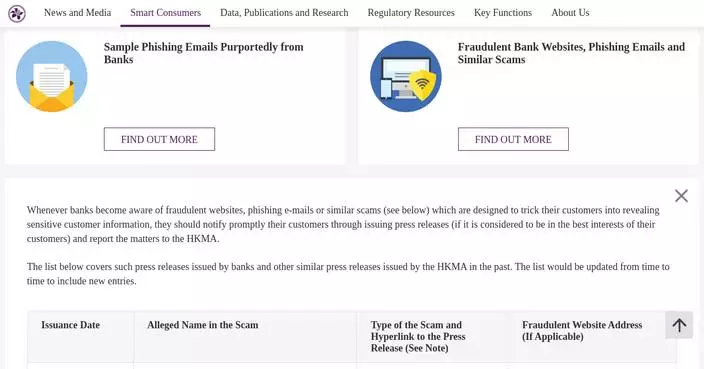
HKMA Warns Public About Recent Banking Scams and Fraudulent Websites
- Two Passengers Imprisoned for Smuggling Duty-Not-Paid Cigarettes at Lo Wu Control Point
- HKFI Cocktail Party 2026: Celebrating Unity and Growth in Hong Kong's Insurance Sector
- Two men sentenced for unauthorized transfer of sports facility bookings, facing 80 hours of community service.
- Labour Department Launches Good Employer Charter 2026 to Promote Work-Life Balance and Family-Friendly Practices.
- New Melioidosis Case in Hong Kong: Public Urged to Maintain Hygiene After Recent Storms
- Hong Kong Launches Port Community System for Smarter, Integrated Maritime Operations
- Hong Kong Customs dismantles drug lab, seizes $10 million in etomidate and cocaine, arrests two suspects.
- FEHD Reports Low Aedes Albopictus Mosquito Levels in January Gravidtrap Survey
- Tender Invited for Light Public Housing Management in Tuen Mun, Encouraging Experienced Organisations to Participate
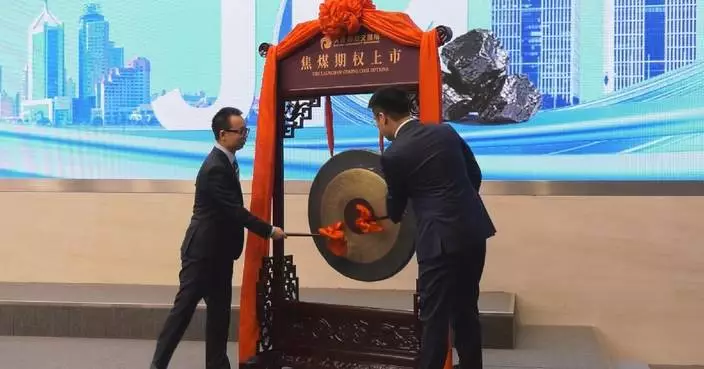
China launches coking coal options
- Airbus forecasts China to lead global aviation services market by 2044
- Cave-training enables astronauts to better endure extreme environments
- Former Slovenian president urges European unity on Greenland
- Iran diplomat claims unrest under control, blames US-Israel plot
- China's giant radio telescope observations unravel origin of cosmic enigmatic flashes
- China's export control on dual-use items to Japan legitimate, reasonable: commentary
- Türkiye opposes military operation against Iran, says FM
- China, Canada should deepen cooperation to unleash potential of complementary economies: expert
- Xi receives credentials of new ambassadors to China
Category · News

The Latest: Middle East allies urge Trump to hold off on Iran strikes, diplomat says

NASCAR community mourns driver Greg Biffle, 6 others killed in plane crash at memorial service
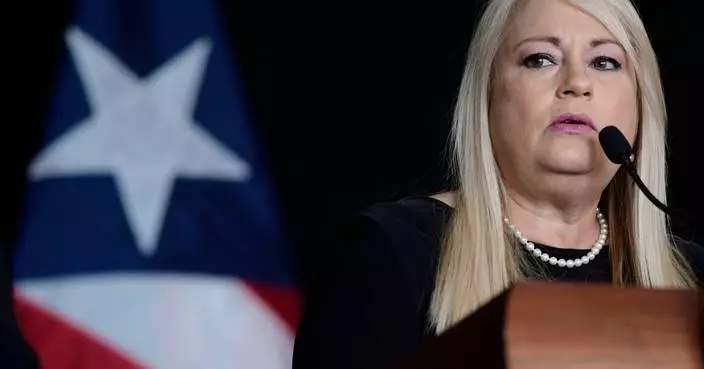
Trump to pardon ex-Puerto Rico governor Vázquez in campaign finance case, official says

Texans' fearsome foursome fuels Houston's pass rush

Members of Zizians group attend hearing ahead of Maryland trespassing trial

Bo Bichette and the New York Mets agree to a $126 million, 3-year contract, AP source says
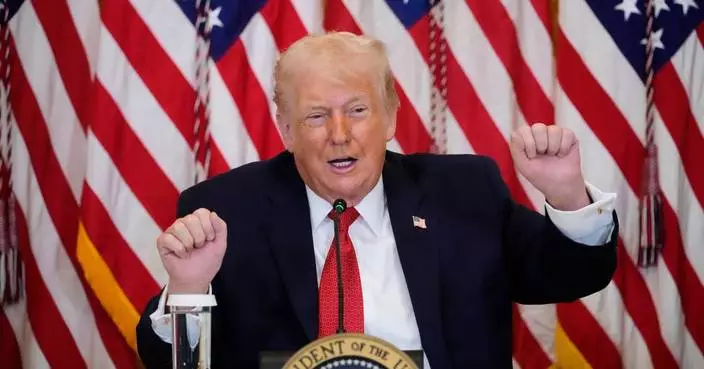
Trump says he may punish countries with tariffs if they don’t back the US controlling Greenland

Palestinian committee set to govern Gaza under US supervision meets in Cairo

Warming shelters for the homeless are open as Florida experiences its coldest weather this winter

Surging Buffalo Sabres starting to bring back memories of the franchise's success of 20 years ago

Carrick becomes the sixth Man United boss to face Guardiola
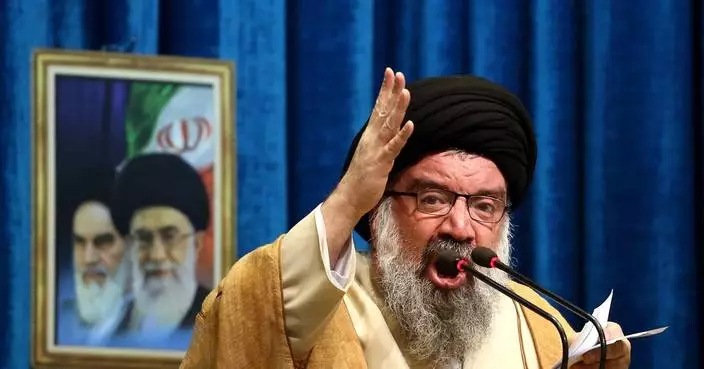
No sign of new protests in Iran as a hard-line cleric calls for executions and threatens Trump
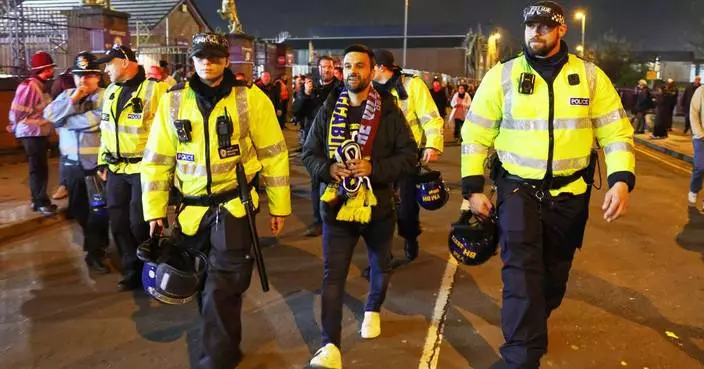
UK police chief who recommended ban of soccer fans of Israeli team Maccabi retires

More than 100 dead in torrential rain and floods across southern Africa

US flu activity fell for a second week. But experts worry the season is far from over
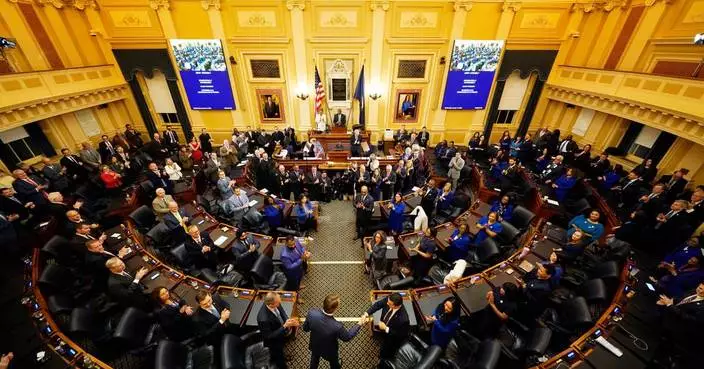
Virginia lawmakers back redrawing congressional maps, paving the way for a voter referendum

Nurses restart contract talks with another major hospital system on 5th day of strike
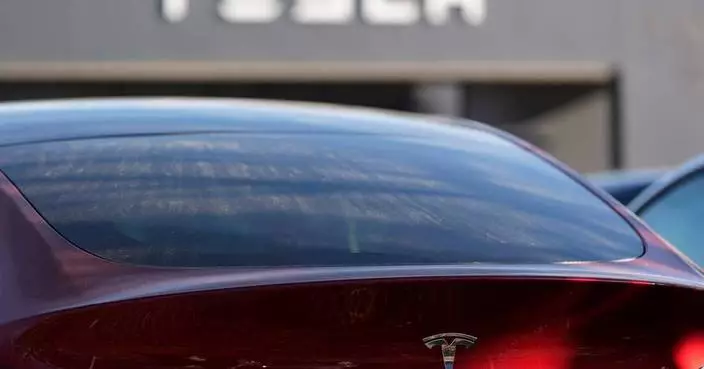
Tesla granted more time in US investigation into its self-driving tech

CIA director meets Venezuela's acting president in Caracas

Tears and anger in Europe as exiled Iranians protest government crackdown

LISTEN: All-Pro QB Matthew Stafford credits teammates, Rams coach Sean McVay for his success

Cuba launches mass demonstration to decry US attack on Venezuela and demand Maduro's release

Kurdish separatist group claims to have mounted ‘armed operations' in Iran to defend protesters

Josh Lowe to Angels, Gavin Lux to Rays and Brock Burke to Reds in 3-team trade

A Liberian man released after his battering-ram arrest in Minneapolis is back in custody again
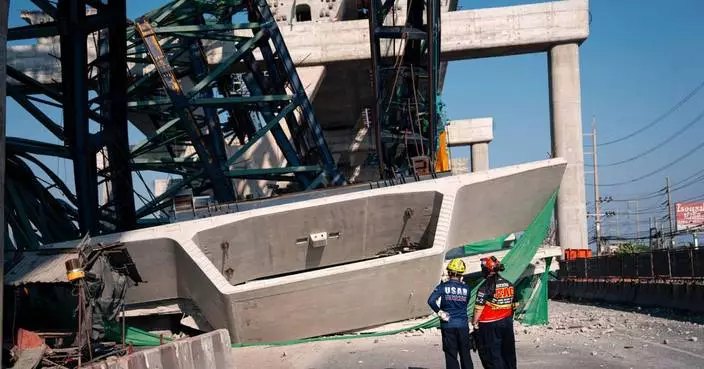
Why Thailand's deadly construction accidents are sparking outrage and scrutiny

US military visits contested area in northern Syria to defuse rising tensions
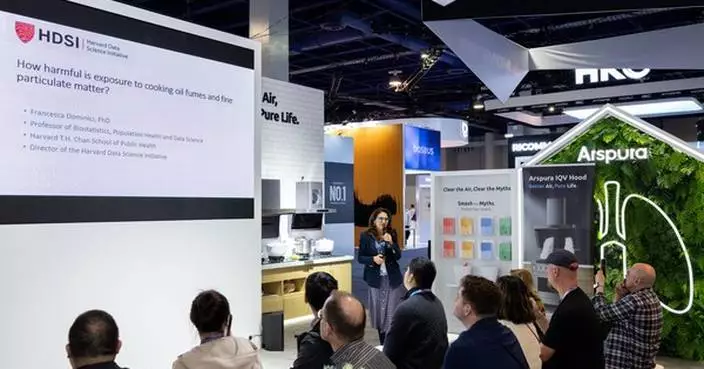
Arspura's CES 2026 Showcase Advances Next-Gen Ventilation for a Healthier Kitchen

Al-Attiyah and Brabec dominate penultimate stage to edge closer to Dakar Rally victories
Shenzhou-20 astronauts share experiences after safely returning from debris incident

How the Trump administration erased centuries of Justice Department experience

Ice dance champ Papadakis says she lost Olympic commentary role for NBC over dispute with ex-partner
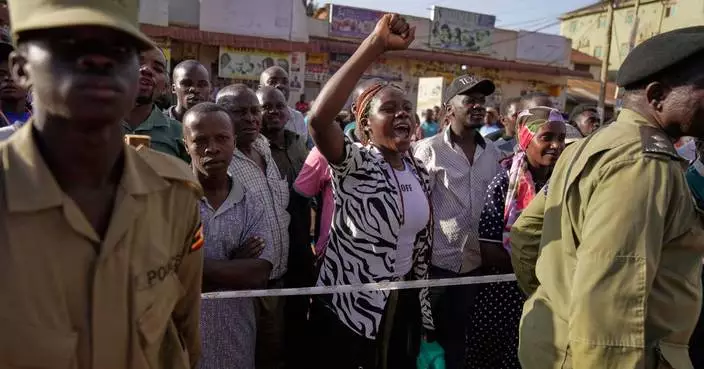
Uganda's president leads in tense election marred by internet shutdown and voting interference

Avangrid’s New England Clean Energy Connect Project Is Complete and Energized

Caesars Palace Welcomes a New Era of Opulence as it Unveils All-New Presidential Villas and Sky Villas

GIGABYTE Strengthens NVIDIA® Partnership to Drive Innovation in AI-Powered Gaming and Creative Solutions

LiberNovo Omni Moss Green Officially Launched
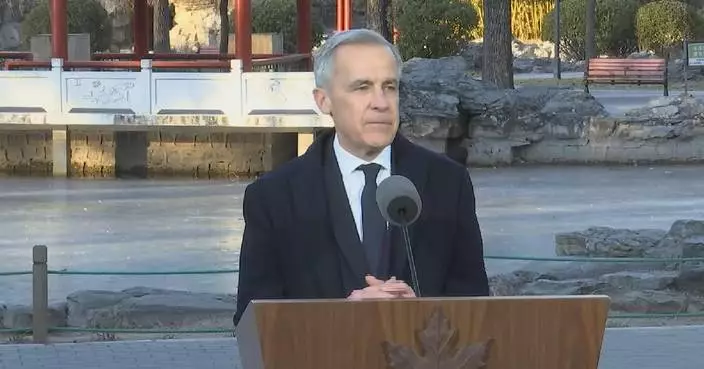
Canada PM Carney says China trip "historic and productive"
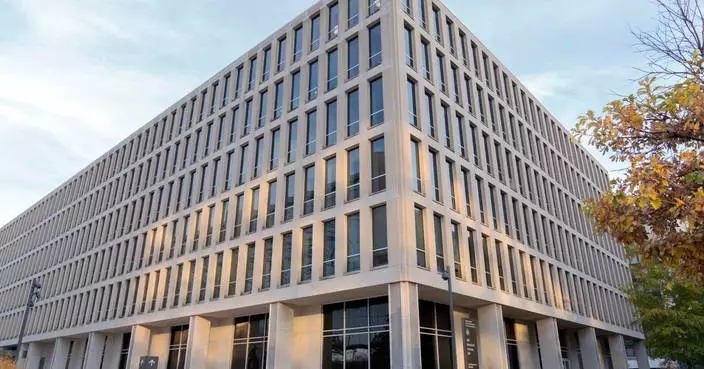
The Education Department is opening fewer sexual violence investigations as Trump dismantles it

Award Ceremony for 2025 Yiwugo's Top 10 Vendors Competition Successfully Held

KRISPY KREME® Helping Fans Level up Monday’s Football Festivities With Limited-Edition Championship Dozen, Available Monday, Jan. 19

South Africa investigates Iran's participation in naval drills off its coast after US criticism

White Castle Launches Early 2026 Deals Focused on Flavor, Value and Convenience

German economy grows 0.2 pct in 2025, ending two years of contraction
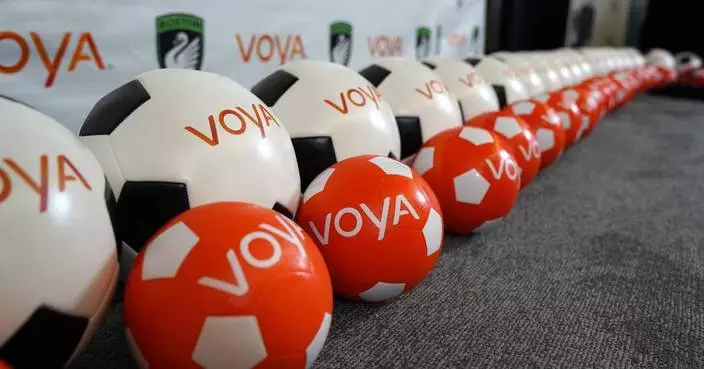
Boston Legacy FC Signs Back-of-Kit Partnership with Voya Financial

Man City close to buying Guehi and manager Glasner announces he is leaving Crystal Palace in summer

WebX Launches Global Chain Commerce Platform and Unveils Chain Capital in Hong Kong

VASA Fitness Opens Eighteenth Club in Colorado, Expanding Access to High-Value Fitness in the State

VEVOR Enters U.S. Physical Retail with First Brick-and-Mortar Store in Houston
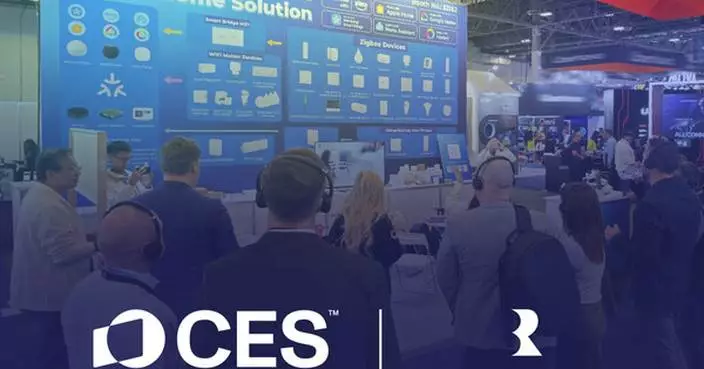
THIRDREALITY CES 2026 Recap: Real Stories, Real Homes, and What Comes Next

Britain's Matt Weston, Belgium's Kim Meylemans clinch World Cup skeleton season titles
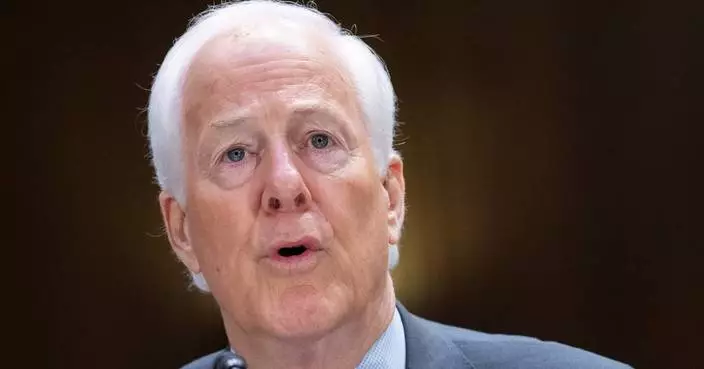
When Texas Republican John Cornyn became a senator, Bush was president. Will he survive Trump's GOP?
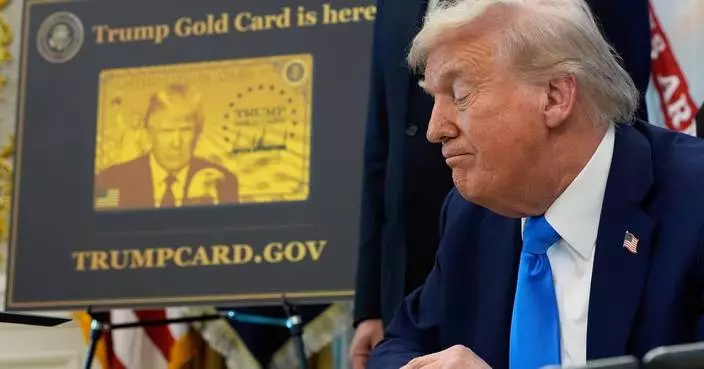
Trump isn't waiting for future generations to name things after him. It's happening now
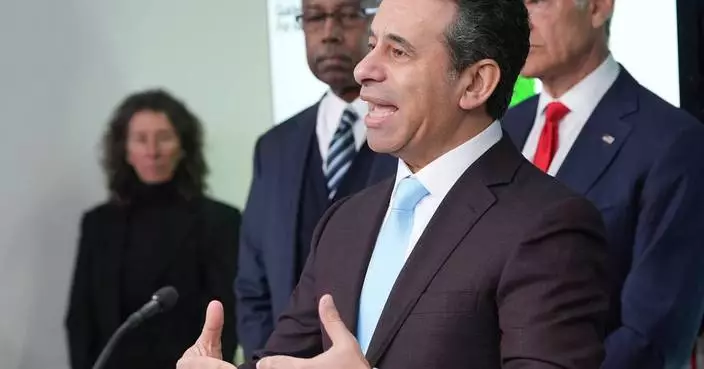
Legal questions swirl around FDA's new expedited drug program, including who should sign off
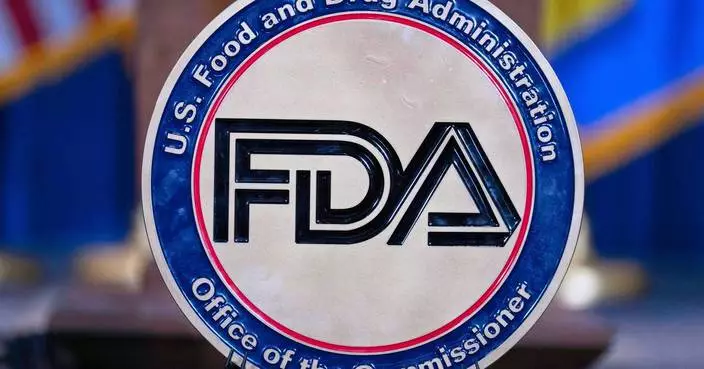
Takeaways from the AP's report on turmoil surrounding the FDA's new fast-track drug program

Crystal Palace and Fiorentina will head east after Conference League knockout playoffs draw
China, Canada should work together for stable, healthy, sustainable economic ties: Vice Premier

The road back to title contention was long for Miami. The Hurricanes have finally broken through
Chinese premier chairs meeting on promoting service consumption

She set a photo afire, lit a cigarette — and became a symbol of resistance for Iran protesters

At a war-ravaged sports center in Ukraine, the hope for Olympic glory persists

A South Korean court sentences Yoon to 5 years in prison on charges related to martial law decree

Walmart Announces Leadership Changes
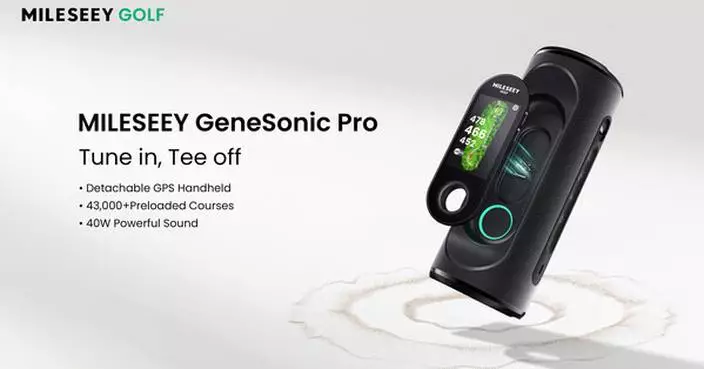
MILESEEY GOLF to Unveil GeneSonic Pro at PGA Show 2026

NUH INAUGURATES NEW CENTRE TO ADVANCE PREDICTIVE AND ACCESSIBLE CARE FOR DIGESTIVE HEALTH
China to strengthen recycling management of used power batteries from NEVs

Giovanni Franzoni's win in Wengen super-G makes him an Olympic contender for host Italy
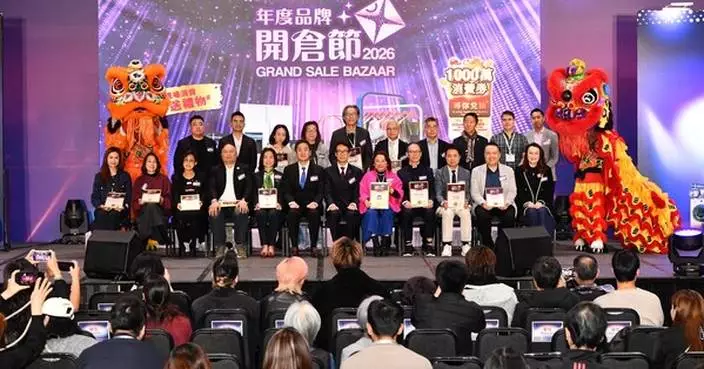
"Grand Sale Bazaar 2026" Officially Opens

Photos show voters going to the polls in Uganda's presidential election
Palestinian death toll in Gaza rises to 71,455

Ukraine’s battered power grid faces unprecedented challenge, energy minister says

Henderson Brothers Announces Executive Successions, Adds New Employee Shareholders

Russian court considers central bank's $232B lawsuit against Euroclear over seized assets

Has figure skating reached the limits of human performance?
ROK ex-president Yoon sentenced to 5 years in prison on arrest obstruction charges

RoboSense Ranked No.1 in Global 3D LiDAR Sales Volume for Robotic Lawn Mowers

Mantle to Introduce New RWA Trading Capabilities and Sports Fan Economies with Fluxion, VOOI, SCOR in Upcoming Jan Livestream
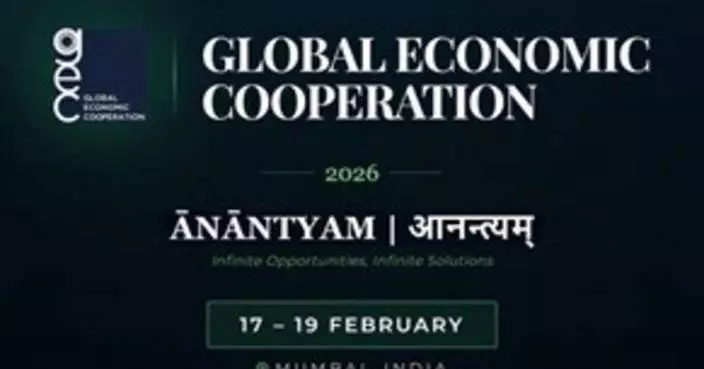
Global Economic Cooperation 2026 to Explore New Pathways for Cooperation, Growth and Resilience in a Multipolar World

ImmunityBio Announces Durable Complete Response of 15 Months with a Chemotherapy-Free CD19 CAR-NK Cell Therapy in Waldenstrom Lymphoma

AST SpaceMobile Awarded Prime Contract Position on U.S. Missile Defense Agency SHIELD Program

Essential Utilities Elevates Alexis Rodriguez to Vice President of Strategy and Corporate Development

Jointly Charging the Road Ahead | Huawei Releases Top 10 Trends of Charging Network Industry 2026

Fire breaks out in one of Seoul's last-remaining shanty towns

In their words: Greenlanders talk about Trump's desire to own their Arctic island




